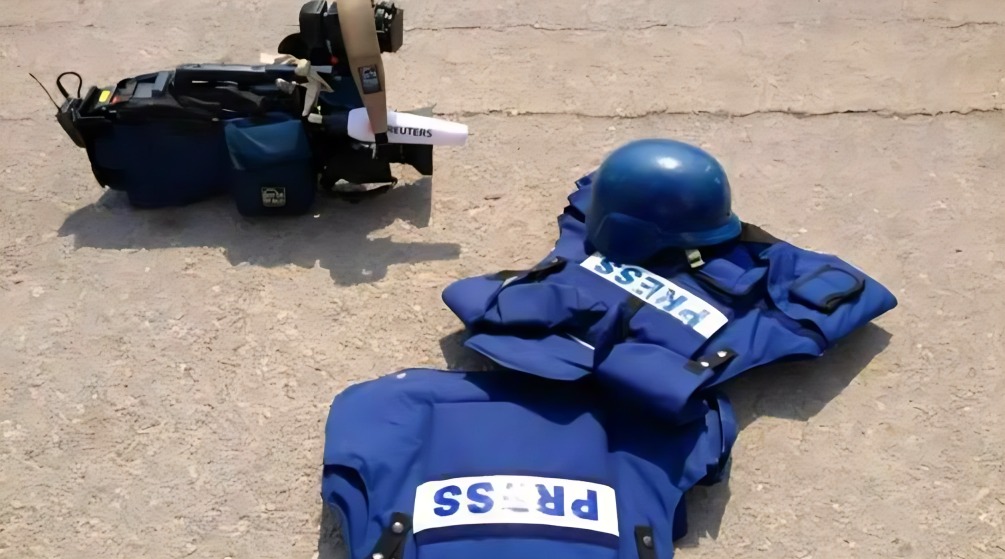


Barran Press
The International Journalist Network (IJnet) has issued a stark warning about the dire conditions facing journalists in Yemen, stating that "the number of enemies journalists have in the country far outweighs the number of friends."
The IJnet report, published on September 3, 2024, highlights the ongoing challenges faced by Yemeni journalists amidst the country's protracted political instability and military hostilities. The decade-long war has created a dangerous environment for independent journalists, with warring factions routinely accusing them of spreading misinformation and engaging in espionage.
Since the conflict erupted in 2015, the Houthis in the north, the internationally recognized Yemeni government, and the Southern Transitional Council separatists in the south have targeted independent journalists, putting their safety at risk.
The IJnet report documents numerous cases of Yemeni journalists facing threats, kidnappings, and arbitrary arrests. The Yemeni Journalists Syndicate has recorded the deaths of 45 journalists since the war began, and six remain in detention by various armed groups.
Despite a truce that began in April 2022, Yemeni journalists continue to face danger. The Yemeni Journalists Syndicate's semi-annual report for 2024 documented 41 violations against journalists and media outlets in the first half of the year, including threats, incitement to violence, and kidnappings.
In early May, the Secretary-General of the Yemeni Journalists Syndicate, Mohammed Shabeeta, was attacked by armed men in the capital, Sana'a, resulting in the death of his cousin and Shabeeta's own injury. The syndicate blamed the Houthi de facto authorities in Sana'a for the attack, while authorities later claimed the incident was a result of clashes between security forces and gunmen, where Shabeeta was caught in the crossfire.
Prior to the war, Yemeni journalists could move freely throughout the country without fear of arrest, kidnapping, assault, or murder. However, covering the conflict has become significantly more challenging due to the country's fragmentation into multiple authorities and armed groups.
To ensure their safety, independent journalists in Yemen often practice self-censorship. When covering humanitarian issues, they may use softer language when referring to warring parties and avoid sensitive topics, opting instead to focus on subjects like sports or environmental issues.
Mohammed Al-Sama'i, a journalist based in Taiz governorate in southwestern Yemen, stated that even when journalists choose to avoid covering politics and military issues that could attract the attention of hostile warring factions, it doesn't guarantee their safety.
"Field reporting is fraught with danger whether the journalist is covering a story about the war or entertainment," Al-Sama'i said. "The parties to the conflict are suspicious of journalists' intentions, and some consider them spies. Because of this, the productivity of media workers is declining, and the quality of journalism is suffering."
The IJnet report also highlights the closure of numerous independent media outlets in Yemen during the war, while the number of media institutions affiliated with warring parties has increased.
According to the Yemeni Journalists Syndicate, nearly 119 magazines and newspapers have ceased publication since September 2014, when the Houthis seized Sana'a. Today, only 13 independent or government-affiliated newspapers remain operational in Yemen.
As a result, many journalists have left the profession to pursue other careers. Even when journalists have jobs, they receive low wages and work without contracts, earning around $150-200 per month.
The Yemeni Journalists Syndicate's report states that "many journalists work without employment contracts for little money, and many local and foreign media outlets refuse to sign contracts with media workers in Yemen."
The IJnet report urges journalists covering the civil war in Yemen to receive safety training, but such training opportunities are limited. Moreover, according to journalist Mohammed Al-Sama'i, media institutions in Yemen do not prioritize these programs.
The IJnet recommends that journalists covering the conflict in Yemen exercise extreme caution before embarking on field reporting. When possible, journalists should obtain necessary permits from authorities in the areas they plan to cover before venturing into the field. Without proper credentials, authorities may perceive journalists as potential enemies or spies.
Journalists in Yemen should avoid frontlines, missile launch sites, and military vehicles. When heavy fighting occurs, combatants often resort to heavy shelling, which can injure or kill journalists even if they are not directly targeted.
Journalists should also be cautious about what they post on social media, avoiding inflammatory language about a particular group or posts that support one side of the conflict.